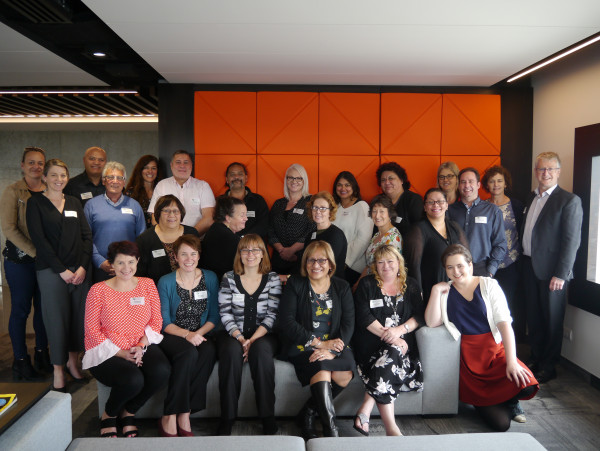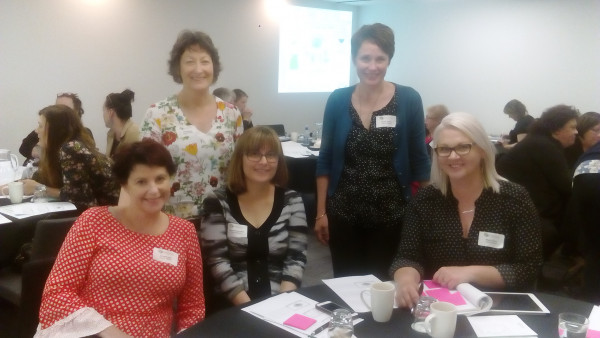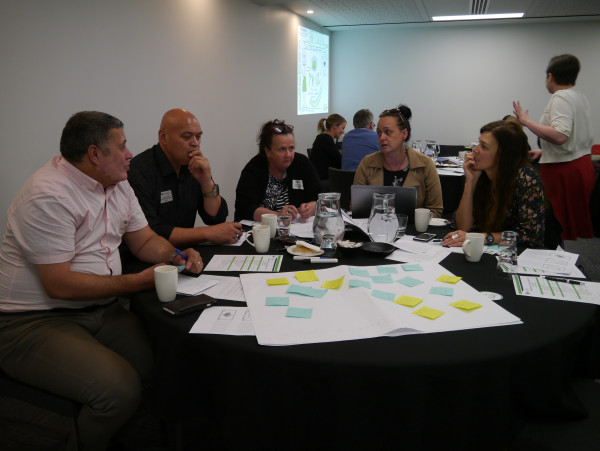Whakakotahi group learning event two
The second Whakakotahi learning event was held in Auckland on 17 October 2017.
All three teams used Plan-Do-Study-Act (PSDA) cycles. to test multiple small-scale changes in their areas for improvement. They presented preliminary data and shared their progress, challenges and learnings from the previous six months. Two consumer members of the teams attended the session – their contribution highlighted the importance of patient stories and patient experience in improvement work.

Whakakotahi project team members, presenters and Commission staff pause for a group photo. Well done to all the teams for your fantastic work.
Workshop
Clinical pharmacist facilitator Brendan Duck led a workshop on integration in primary care. The teams discussed the barriers and enablers for integration in their own projects.
These can be very context specific and it is important to identify them as a team of health providers and patients/whānau. Issues with staff wellbeing and burnout are a common barrier across many contexts.
Bodenheimer & Sinsky’s 'Quadruple Aim' adds health providers’ experience at work as a fourth dimension of the IHI Triple Aim (optimising health system performance by enhancing patient experience, improving population health and reducing cost). The key takeaway for one team member was the reminder that all change processes in health need to have patients/whānau at their heart to be effective.
'The Human Side of Change' was the second workshop of the day. Quality improvement advisor Jane Cullen talked about the psychology of motivation to change, and the importance of culture and context in changing behaviour. People don’t resist change so much as they resist being changed.
People will support what they help create. Team members also had positive feedback about learning to use the TRIZ Theory of Inventive problem solving tool to identify and remove counterproductive behaviours and make room for innovation.
- The event was captured by a graphic artist and the drawings are available to download here (18MB, PDF).



The three Whakakotahi teams apply the TRIZ methodology to their projects.
